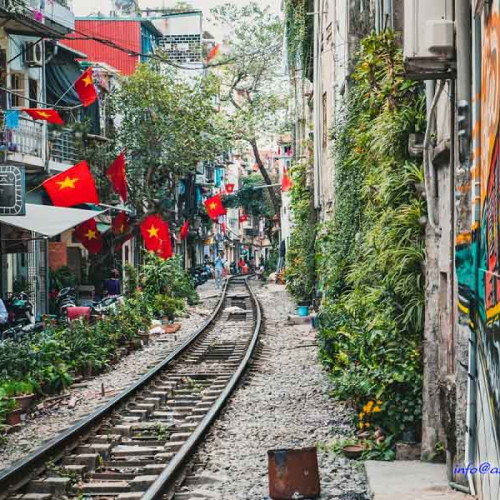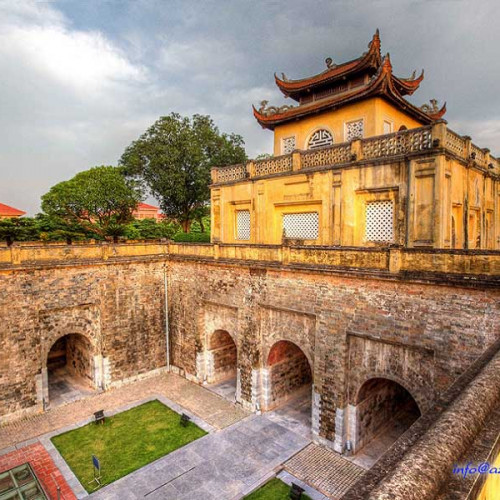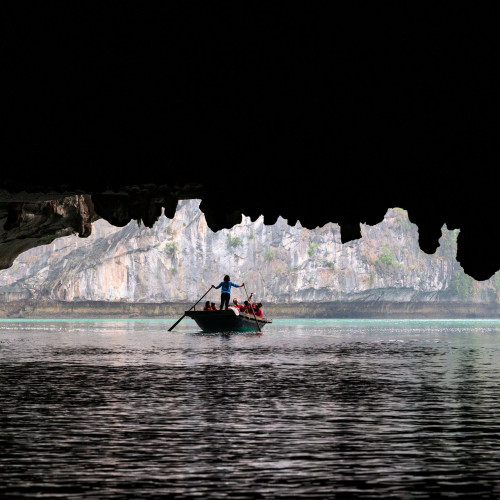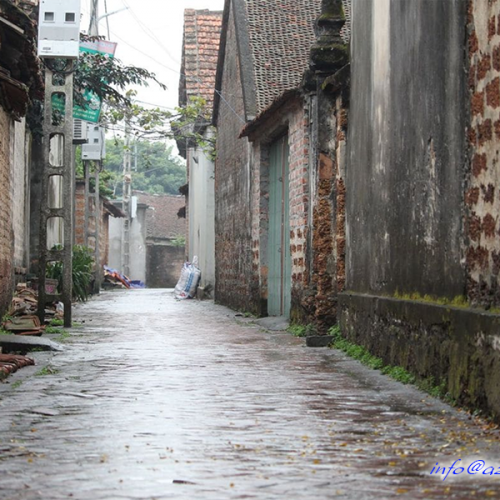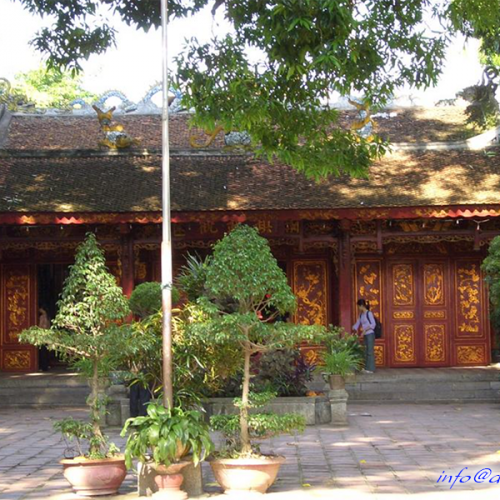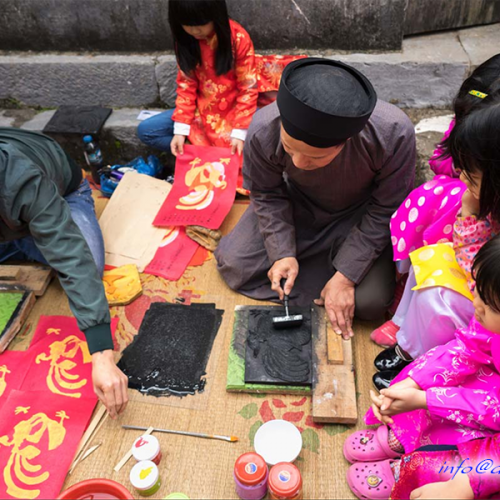Vietnam COVID-19 News - Coronavirus disease 2019
Update: 15th March 2020
This article will be updated as further developments in Vietnam become available.
Latest Updates
- As of 12:00 pm on March 15, Vietnam will temporarily Suspends all visas and deny entry to travelers from the UK and the 26 Schengen countries; this includes travelers that have visited or transited through these countries in the past 14 days. This will be effective for 30 days.
- In addition, Vietnam has suspended visa on arrival for all foreign nationals except for those on official or diplomatic trips. Those who currently hold visas to enter Vietnam will need to undergo screenings and may be quarantined when entering the country.
- As of March 15, Vietnam’s Ministry of Health confirmed a total of 53 cases of COVID-19 (or Coronavirus). 11 of the cases were foreigners on flights from the UK to Hanoi.
- Ho Chi Minh City officials have announced restrictions on organizing meetings attended by over 1,000 people. In addition, all bars, clubs, cinemas, massage parlors, karaoke shops and online gaming centers will be closed from 18.00pm on March 15 until March 31.
- Authorities have shut almost tourist spots in Hanoi as well as Hoi An. All tourist activities in Quang Ninh Province -provincal of Halong, Baitulong have also been suspended.
- The World Health Organization (WHO) on March 11 declared COVID-19 (or Coronavirus disease) as a pandemic which is an “epidemic occurring worldwide” as per the WHO. To put this in context, the latest pandemic was declared in 2009 caused by the H1N1 swine flu.
- From March 12 to March 26 tourist attractions such as Ha Long Bay, Bai Tu Long Bay, and Yen Tu Complex in the Northern Vietnam will be closed to visitors.
- Vietnam Airlines will suspended all flights from London, Paris and Frankfurt from March 15.
- Two communes – Viet Hai and Gia Luan in Hai Phong were put under lockdown on March 9 after a British tourist with the virus visited there. This is in addition to four residential areas already under lockdown.
- Authorities have restricted all foreigners from the tourist destination of Ly Son Island in Quang Ngai province from March 9. Vietnamese tourists entering the island will have to fill out health declarations. In addition, authorities have also barred tourists from Cham islands, off the coast of Hoi An in Danang City from March 10.
- Vietnam launched a mobile app that will allow all Vietnamese to declare their health status. The government has urged citizens to update their health status on the app.
- Around 300,000 residents of Ha Long town were required to fill out health declaration forms from March 8 after 52 tourists traveled to Ha Long due to the epidemic.
- City authorities in Hanoi disinfected Truc Bach street where the first COVID-19 patient was detected, as well all main streets in Ba Dinh district as a precaution.
- The Vietnamese government is expected to unveil a credit package of US$10.8 billion and a fiscal package of US$1.3 billion in March for businesses affected by the coronavirus outbreak.
- Vietnam now requires all travelers from Cambodia to fill out health declaration forms, after a transit passenger from Japan tested positive from the virus. In addition, health authorities will require all passengers arriving from any country into Vietnam to fill out health declaration forms from March 7.
- The Vietnamese Prime Minister has asked ministers and government officials to consider canceling foreign trips to the epidemic.
- Instant noodle demand has surged by 67 percent due to the COVID-19 epidemic. This was preceded by mouthwash at 78 percent as per a market study by Nielsen Vietnam.
- Vietnam will produce 10,000 COVID-19 test kits daily after a successful pilot and approval from the World Health Organization (WHO).
- The authorities lifted the lockdown in Son Loi commune in Vinh Phuc province on March 4. The commune was put under lockdown on February 13 after six cases of the virus were found there. The commune comprises of several villages and is around 40 kms north of the capital Hanoi.
- Several coffee shops and restaurants have shut down on Phan Xich Long Street in Phu Nhuan District – one of the busiest – in Ho Chi Minh City.
- Vingroup will shut seven of its resorts and golf courses due to less demand caused by the epidemic.
- Beginning March 3, Italian nationals will no longer be granted visa-free entry into Vietnam in response to the COVID-19 outbreak. In addition, ethnic Vietnamese from South Korean and Italy will longer be granted visa-free entry from March 8.
- From March 1, all flights from South Korea will not be allowed to land at Hanoi and Ho Chi Minh City airports, instead they will be directed to Van Don (Quang Ninh Province) and Can Tho Airports for processing and quarantining of passengers.
- In addition, Iranian and Italian travelers will also be subject to a 14-day quarantine when arriving in Vietnam.
- Vietnam on February 29 suspended the visa-waiver program for South Korean nationals. In addition, all incoming travelers from South Korea will be subject to a mandatory 14-day isolation. Around 700 passengers from South Korea are in quarantine at Can Tho as a precaution.
- Vietnam Airlines and low-cost carrier Vietjet will temporarily suspend all flights to and from South Korea from March 5 and March 7 respectively. Earlier on February 26, Bamboo Airways had suspended all flights to and from South Korea.
- High school students in 58 provinces resumed classes from March 2, while elementary school students will resume classes on March 8. In Hanoi and Ho Chi Minh City 12 grade students are expected to resume classes on March 15, with others expected to resume a week later.
- The US Centers for Disease Control and Prevention (CDC) on February 27, removed Vietnam from the list of destinations vulnerable to community transmission of COVID-19 citing Vietnam’s comprehensive actions against the epidemic. The CDC will also send a delegation in March to enhance medical cooperation between the US and Vietnam. It also plans to establish a CDC regional office in the country.
- Vietnam’s Prime Minister has ordered the tax authorities to reschedule tax payments to support businesses affected by COVID-19.
- Vietnam and China have agreed to reopen further border crossings to ease restrictions and normalize trade. Several border crossings in Quang Ninh, Lai Chau, Lao Cai - Sapa, Lang Son, and Ha Giang have reopened. However, backlogs remain, and other border crossings remain closed.
- Khanh Hoa province, home to the tourist destination of Nha Trang has been declared COVID-19 free as of February 26. The province has not reported any COVID-19 cases since February 4. Despite the epidemic, Russian tourists have continued to visit the tourist destination of Nha Trang with just a slight dip compared to last year in the same period.
- Vietnam’s labor ministry announced that it will stop issuing new work permits to foreigners who come from areas hit by COVID-19.
- Vietnam’s Prime Minister has barred all travelers coming from areas that have experienced a COVID-19 outbreak. The policy includes travelers from South Korea, Japan, Italy, and Iran.
- Due to the increase in cases in South Korea, Vietnam has implemented mandatory health declarations at all international border gates for passengers arriving from South Korea.
- Vietnam’s civil aviation authority suspended all flights to mainland China, Hong Kong, Macau, and Taiwan on February 1. However, the authority lifted the ban for Hong Kong, Macau and Taiwan from February 2. Flights to and from mainland China (including transit) remain suspended.
- The northern province of Cao Bang, which shares its border with China has run out of rooms for quarantining people for those returning from China. Authorities there have had to send patients to neighboring provinces of Bac Kan and Thai Nguyen for isolation. Around 700 Vietnamese that arrived from China between February 4 and 22 have been kept in isolation in Cao Bang.
- Up to 300 businesses in Vietnam have temporarily suspended operations while others have downsized due to the outbreak.
- The south-central province of Khanh Hoa, home to the tourist destination of Nha Trang is preparing measures to declare itself virus-free after no new cases were recorded in the past 30 days.
- The novel coronavirus has been renamed as COVID-19 as per the World Health Organization (WHO). The Co and Vi come from coronavirus, with D meaning disease and 19 for 2019.
- The Ministry of Finance (MoF) has announced a list of medical supplies including masks, dry hand sanitizers, filters, epidemic prevent suits, among others exempt from tax until the epidemic ends.
- We are hearing accounts of travelers in more remote border crossings into Vietnam being denied entry if they possess any China visa history in their passport. While this may not be an official policy, it appears to be implemented at certain border crossings in more remote areas. If travel into Vietnam is required we recommend using the main border entry-exit points.
- Dezan Shira & Associates‘, Trent Davies, Manager of our Ho Chi Minh City office, spoke at an AmCham Vietnam event Impact of Novel Coronavirus on Your Health and Business in Ho Chi Minh City, Vietnam. During the event, Trent discussed the broad economic impact of the epidemic in Vietnam, especially in vulnerable industries such as education and tourism. A full summary can be found here.
- Vietnam issued Decision No.173.QD-TTg declaring coronavirus as an epidemic – in line with the World Health Organization’s declaration of the virus as a global health emergency.
- The government has ordered the health ministry to supervise and early detect infected cases, monitor border crossings, airports, and seaports, particularly for passengers coming from affected areas.
- Vietnam stopped issuing visas for Chinese tourists on January 30 as a temporary measure. Foreign visitors who have visited mainland China (including transit) in the past 14 days from arrival will also be denied entry into Vietnam.
- Passenger train services between Vietnam and China have been suspended until further notice, however freight train services between the two countries continue to operate.
- On February 4, more than 200 passengers from China were denied entry at Ho Chi Minh City airport by border officials. The passengers were sent back on respective flights.
- The labor ministry has also asked businesses to keep names and other information of Chinese and foreign workers who have visited virus affected areas. In addition, they must be quarantined for two weeks for health checks.
- Vietnam’s airports have been ordered to deploy additional personnel and coordinate with local health agencies to deploy body temperature scanning equipment as well as a screening of passengers.
- Building management of some apartment buildings in Hanoi and Ho Chi Minh City have begun body temperature checks for people entering the building. Ho Chi Minh City officials have asked building authorities to strengthen preventive measures at apartment buildings.
Impact and Summary
Vietnam has currently declared 53 cases of the coronavirus infection and Vietnam offers free treatment for all Vietnamese Covid 19 patients. However, we have concerns that more cases will arise. Travelers from epidemic affected areas will face additional checks and screening.
As mentioned earlier, 16 of the patients have recovered and have been discharged from hospitals. However, Vietnam has quarantined 101 suspected cases of the virus as a precaution. Suspected cases are those people that have returned from epidemic areas or have had direct contact with returnees from epidemic areas and show symptoms as per the Ministry of Health.
The virus’s symptoms are respiratory and seem to start with a fever, cough, and shortness of breath gradually. However, in serious cases, it can lead to pneumonia, acute respiratory syndrome, kidney failure, and death.
There is currently no vaccine, so patients are being treated for their symptoms.
Vietnam’s health ministry has further stated that the fatality rate of the virus is 2 percent as compared to the 9.6 percent of the SARS virus in 2002-2003.
Recent developments indicate that some Chinese travelers may have already been infected but not realized it – the virus appears to have a non-symptomatic 7-14 day incubation period. Further border checks and other travel restrictions are possible given the rapidly evolving developments.
Businesses operating in Vietnam need to prepare for an escalation of the coronavirus in Vietnam and be ready for measures taken by the authorities to get enforced with little or no notice.
We recommend businesses in Vietnam contact their staff to ascertain where they are and discuss any regional or national advisories concerning travel. Staff experiencing any cough or flu-like symptoms should not return to the office or factory.
While travel to Vietnam can continue, we recommend taking precautions and following advice from Vietnam’s Ministry of Health.
Basic precautions one can take to reduce their risk to the coronavirus as advised by the World Health Organization (WHO) are:
- Wash hands with soap and water or an alcohol-based hand rub;
- Cover nose and mouth with tissues or inside of elbow when coughing or sneezing;
- Avoid close contact with anyone with cold or flu-like symptoms;
- Thoroughly cook meat and eggs; and
- Avoid unprotected contact with live wild or farm animals
We will continue to provide updates as they become available.
Posted byVietnam Briefing - Written by Dezan Shira & Associates Staff in Vietnam
 Hot deals
Hot deals

